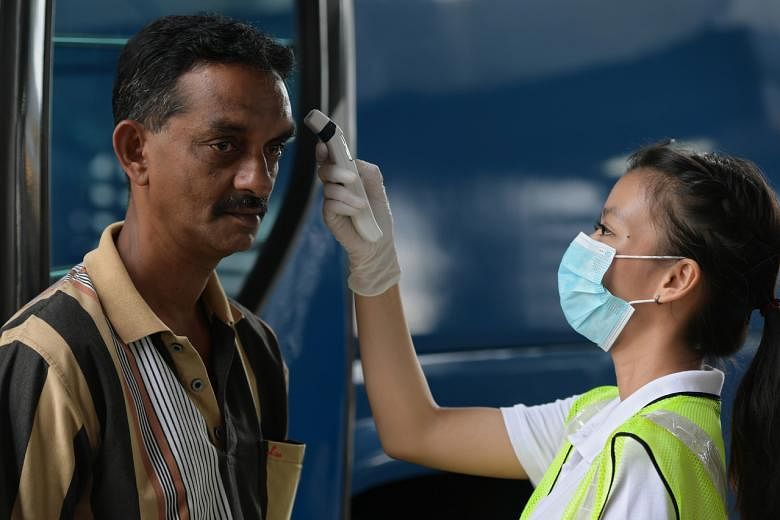SINGAPORE - With Singapore raising its coronavirus outbreak alert from yellow to orange, employers should consider temperature checks, splitting teams and letting staff work from home where possible.
These were among a slew of business continuity measures recommended by the Manpower Ministry (MOM), National Trades Union Congress (NTUC) and the Singapore National Employers Federation (SNEF) in a joint advisory as the nation shifted to the higher Disease Outbreak Response System Condition, or Dorscon.
The joint advisory on Friday (Feb 7) said employers should step up their business continuity plans and prepare for widespread community transmission.
Such plans should be clearly explained to employees beforehand, and unionised employers should engage their unions early.
The plans could include separating front-line staff into teams that can work at different places or times to avoid the risk of infection between groups.
Employees can also be cross-trained and have covering arrangements to minimise disruption.
Staff that can do so could be allowed to work from home, and employers could review work processes and procure the necessary equipment for flexible work arrangements.
The advisory also asked employers to consider screening temperatures for visitors or customers, who can then be asked to return another day if they are unwell.
MOM, NTUC and SNEF also urged employers to remind employees of the importance of good personal hygiene, for example, washing hands regularly and refraining from touching one's face.
All employers should require their employees to check their temperature at least twice daily, check for respiratory symptoms, and for those unwell to visit a doctor immediately.
Employees who are older, pregnant or with underlying medical conditions should be given special attention in planning their work, and should have less exposure to front-line work.
Employers should also support employees if they need to stay at home to take care of children, and should consider flexible work arrangements to allow them to work from home.
Employees serving the mandatory 14-day leave of absence can work from home, or if this is not possible, be given additional paid leave for the period.
Other options include allowing employees to use leave or no-pay leave, granting paid time off or other mutually agreeable arrangements.
Workers on home quarantine will be deemed to be on paid hospitalisation leave.
It also reiterated advice from the Health Ministry for employers to cancel or defer large-scale events.
Those who proceed with such events should screen participants' temperature, look out for symptoms like cough or runny nose, check for travel history, and ensure facilities are frequently cleaned and well-ventilated.












